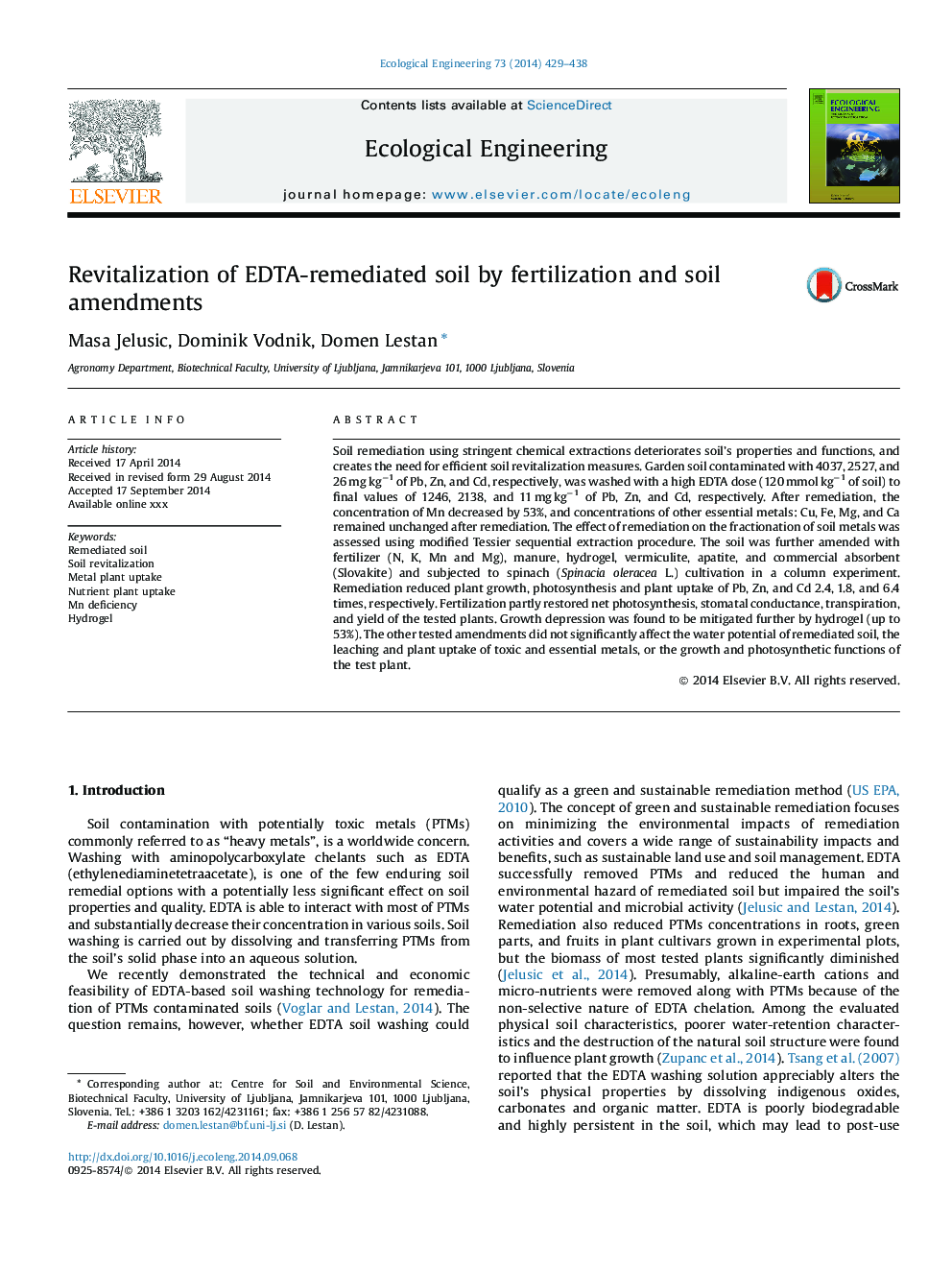| Article ID | Journal | Published Year | Pages | File Type |
|---|---|---|---|---|
| 6301967 | Ecological Engineering | 2014 | 10 Pages |
Abstract
Soil remediation using stringent chemical extractions deteriorates soil's properties and functions, and creates the need for efficient soil revitalization measures. Garden soil contaminated with 4037, 2527, and 26 mg kgâ1 of Pb, Zn, and Cd, respectively, was washed with a high EDTA dose (120 mmol kgâ1 of soil) to final values of 1246, 2138, and 11 mg kgâ1 of Pb, Zn, and Cd, respectively. After remediation, the concentration of Mn decreased by 53%, and concentrations of other essential metals: Cu, Fe, Mg, and Ca remained unchanged after remediation. The effect of remediation on the fractionation of soil metals was assessed using modified Tessier sequential extraction procedure. The soil was further amended with fertilizer (N, K, Mn and Mg), manure, hydrogel, vermiculite, apatite, and commercial absorbent (Slovakite) and subjected to spinach (Spinacia oleracea L.) cultivation in a column experiment. Remediation reduced plant growth, photosynthesis and plant uptake of Pb, Zn, and Cd 2.4, 1.8, and 6.4 times, respectively. Fertilization partly restored net photosynthesis, stomatal conductance, transpiration, and yield of the tested plants. Growth depression was found to be mitigated further by hydrogel (up to 53%). The other tested amendments did not significantly affect the water potential of remediated soil, the leaching and plant uptake of toxic and essential metals, or the growth and photosynthetic functions of the test plant.
Keywords
Related Topics
Life Sciences
Agricultural and Biological Sciences
Ecology, Evolution, Behavior and Systematics
Authors
Masa Jelusic, Dominik Vodnik, Domen Lestan,
